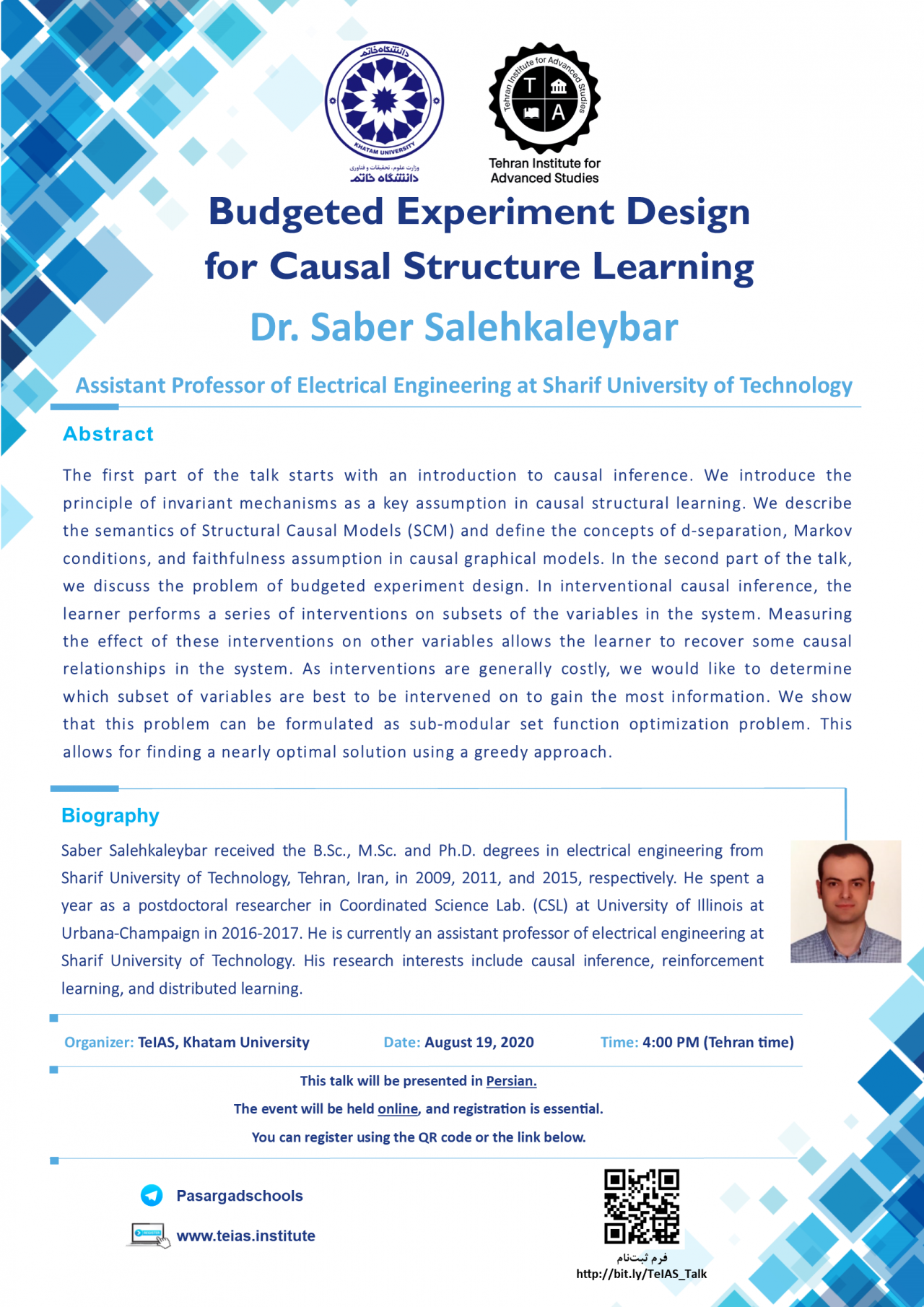
Dr. Saber Salehkaleybar
Assistant Professor of Electrical Engineering at Sharif University of Technology
Overview
The first part of the talk starts with an introduction to causal inference. We introduce the principle of invariant mechanisms as a key assumption in causal structural learning. We describe the semantics of Structural Causal Models (SCM) and define the concepts of d-separation, Markov conditions, and faithfulness assumption in causal graphical models. In the second part of the talk, we discuss the problem of budgeted experiment design. In interventional causal inference, the learner performs a series of interventions on subsets of the variables in the system. Measuring the effect of these interventions on other variables allows the learner to recover some causal relationships in the system. As interventions are generally costly, we would like to determine which subset of variables are best to be intervened on to gain the most information. We show that this problem can be formulated as sub-modular set function optimization problem. This allows for finding a nearly optimal solution using a greedy approach.
Biography

Saber Salehkaleybar received the B.Sc., M.Sc. and Ph.D. degrees in electrical engineering from Sharif University of Technology, Tehran, Iran, in 2009, 2011, and 2015, respectively. He spent a year as a postdoctoral researcher in Coordinated Science Lab. (CSL) at University of Illinois at Urbana-Champaign in 2016-2017. He is currently an assistant professor of electrical engineering at Sharif University of Technology. His research interests include causal inference, reinforcement learning, and distributed learning.
